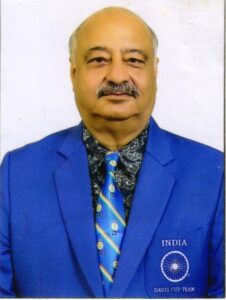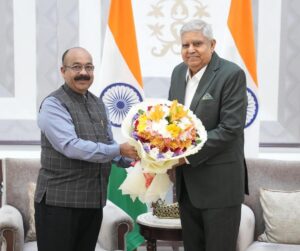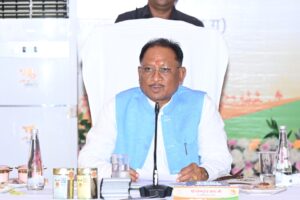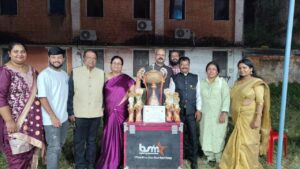Women leading towards Economy of Equality
9 min read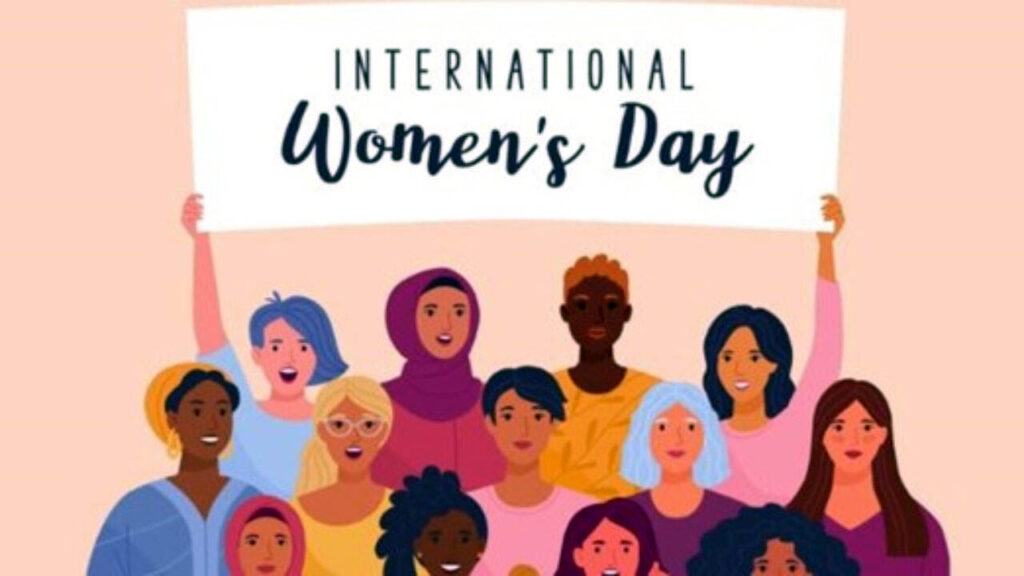
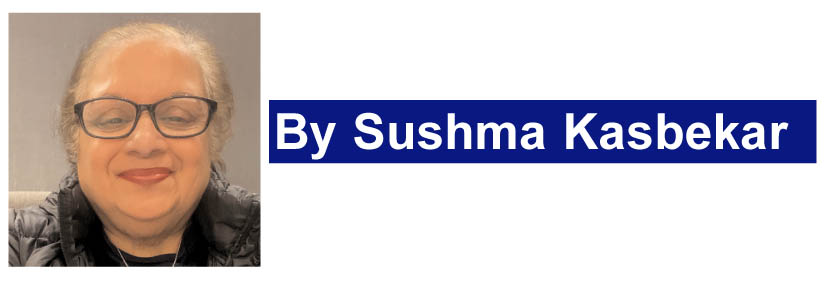
Over the last decade, India has made significant strides in enhancing Women’s Labor Force Participation Rate (WLFPR). The transformative potential of increasing women’s, and especially young women’s participation in the workforce is immense, promising not only to bolster economic growth but also to catalyze societal change. Interestingly, the increase in WLFP over the last decade might be more significant than the increase observed over the last century, reflecting broader socio-economic changes, policy interventions, and shifts in societal norms regarding women’s work.

Dhuwarakha Sriram is the Chief of YuWaah at UNICEF India
India has implemented numerous initiatives and policies to bolster women’s employment, reflecting significant progress in promoting gender balance in the workforce. Key initiatives include Pradhan Mantri Mudra Yojana, aimed at prioritizing women entrepreneurs by providing unsecured loans to start small businesses. Additionally, the Beti Bachao, Beti Padhao campaign has been instrumental in improving the educational status of girls, directly impacting their future employment prospects. These efforts, combined with corporate policies to ensure workplace safety and diversity, illustrate a comprehensive approach to dismantling barriers for women in the labor market.
The Periodic Labor Force Survey (PLFS) indicates an increase in women’s workforce participation by 13.9 percent with 22 percent in 2017-18 to 35.9 percent in 2022-23. This promising trend is a testament of heightened political and bureaucratic (public), corporate (private), and young women’s will. As the largest youth population in the world, here in India, gears up for economic opportunities, it is important to further strengthen this Public-Private-Youth ecosystem and include young women as equal partners to inform policy making at the highest level.
In light of improving the WLFPR, Ministry of Labour & Emplyment (MoLE|)’s efforts towards bringing together a task force with representation from government, civil society, industry associations, and multilateral agencies is commendable. What emerged as a critical outcome from these taskforce discussions was compiled as an advisory for employers titled ‘Ensuring Equality, Empowerment for Women’, which reinforces the power of a collaborative approach among stakeholders. It underscores the importance of creating conducive work environments, equitable wage practices, and ensuring health and safety standards specifically tailored to the needs of women in the workforce.
By recommending measures such as flexible work hours and childcare facilities, the advisory aims to address some primary constraints that limit women’s participation in the labor market.
The importance of provisions for gender neutral creches and Women’s working hubs has been emphasized equally for construction workers, migrant workers and women working in micro, medium and small enterprises. Social barriers towards mobility and childbearing are the two most important factors that deter young women from entering and re-entering the workforce. To fulfil the vision of women working hubs/hostels with attached creche and senior care facilities, as outlined in the advisory, collaborative efforts between the Government and private sector will be crucial. This will involve building quality infrastructure with world-class facilities with provisions of safety, security, healthcare, nurturing young women as agents of change and choices, and strengthening abilities to take their own decisions. Support from civil society and multilateral agencies will bolster the behavioral shift for communities and families to consider these centers as a place for young women to pursue their aspirations towards economic empowerment.
With COVID-19 changing the way we perceive workplaces, and more jobs transitioning to hybrid and remote, technology can be a game changer in eliminating the nuances of a traditional workplace. Provision for flexible opportunities for all genders including teleworking facilities, has been highlighted in the advisory to reinforce the fact that caregiving should be a collective responsibility and women do not drop off from employment due to the disproportionate burden of caregiving falling on them.
These developments suggest a progressive, though challenging, path towards greater economic empowerment of women, highlighting the need for continued policy focus and social change to sustain and enhance these gains.
As India stands at the cusp of a demographic dividend, unlocking the potential of its female workforce is a matter of social justice and a strategic economic imperative. The advisory from MoLE, along with concerted efforts from all sectors of society, offers a blueprint for action.
The journey ahead is challenging, but the rewards—economic resilience, societal well-being, and the fulfillment of human potential—are within reach, making the endeavor not just necessary but essential for India’s ascent on the global stage.

Dr. Parvathy Varma’s
Dr. Parvathy Varma’s life story is a remarkable narrative of passion, perse-verance, and the relentless pursuit of illuminating the path for future generations of psychologists, counsellors, and educators. Her journey in psychology began with a focus on addressing the unique challenges encountered by parents of children with intellectual disabilities. Her early professional endeav-ours were collaboration with special needs schools and a German NGO to develop assessments for children with special needs. Following her doctor-ate, she founded Pathfinders, an organisation in South India dedicated to providing aptitude testing and career counselling for high school students.In 1997, Dr. Varma embarked on a transformative journey to Thailand, joining Assumption University, Bangkok, Thailand, as a lecturer. Assumption Univer-sity, the first international university in Thailand has attracted students from Thailand and abroad for many years. For Dr. Parvathy, this new chapter came with its share of challenges, notably the language barrier that initially hindered her work with children with intellectual disabilities. Yet, her resilience and adaptability soon led her to pivotal roles within the university, notably in the management school, where she began to diversity her research interests to include Gerontology, Health Psychology, Organisational Behaviour, and Positive Psychology. Her deep insights into the ageing process and the soci. etal roles of older adults, especially within the Indian family context are signit-icant.As Program Director for both the Doctor of Philosophy in Counselling Psychology and Master of Science in Counselling Psychology at the Graduate School of Human Sciences she brought in a remarkable growth for the school with a 200% increase of students in both the programs. Her leadership also extends to her role as the Director of the Psychological Counselling Center at the Martin de Tour School of Management and Economics and the Assumption University Counselling Center.
Dr. Varma’s dedication to mentorship and guidance is evident in her supervision of over 25 doctoral students and the successful completion of more than
40 Master’s theses. Beyond academia, her contributions to the Gambling Research Excellence Center and her proactive involvement as the Vice President of the Asia Pacific School Psychology Association highlight her influence in advancing psychological practices and education in the region. She has presented papers in several International Conferences in Europe, US, UK, Singapore, Mauritius, India and Thailand, and received a best paper award.
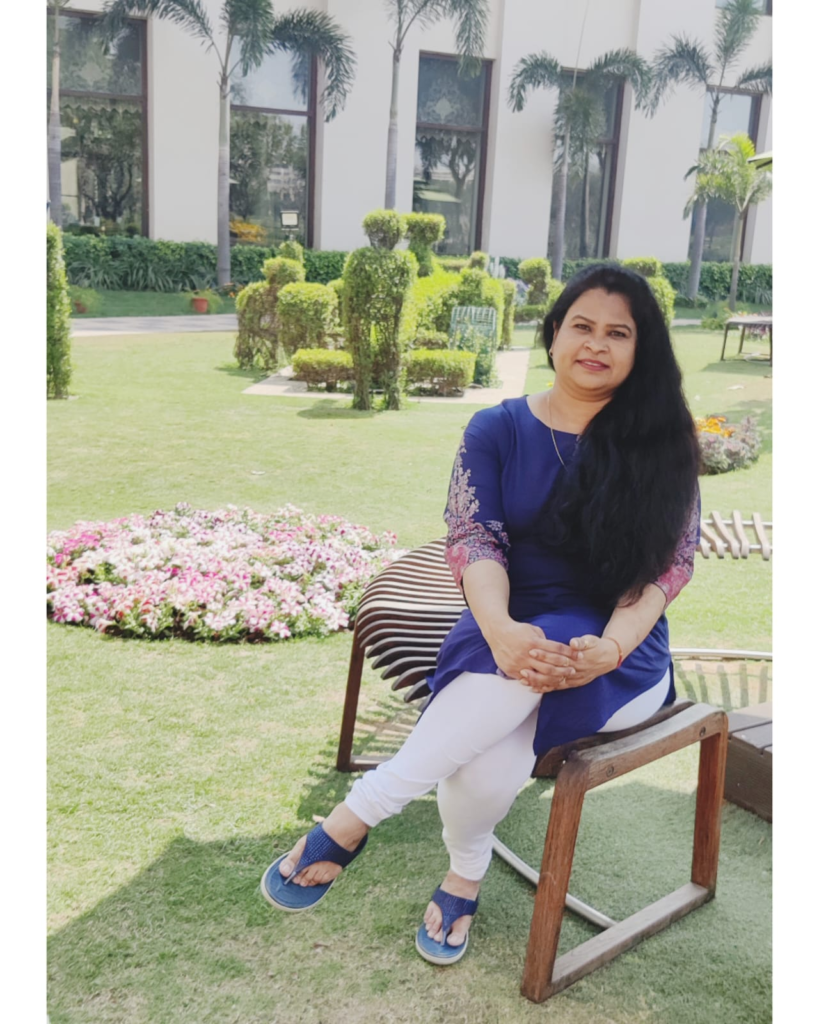
Megha Belsare
At 49 years young, I’m Megha Belsare, driven by a passion for business and food. Alongside my role at Avaada Energy, I’ve launched Nutriom, my own homemade food business, aimed at revolutionizing the health food market. NutriOm offers a harmonious blend of nutrition and taste, bringing back the authentic flavors of traditional Indian cuisine in a modern, health-conscious context. Our flagship products, including rich, pure, and sugar-free Ladoos, as well as savory roasted namkeens like Chivda, cater to individuals craving sweets without compromising their health.
Before embarking on my corporate journey post-COVID, I spent over a decade as a librarian, having completed my Master’s in Library Science. From my background in libraries to venturing into entrepreneurship, my journey is one of adaptation and pursuing what I’m truly passionate about.
The onset of Covid-19 ushered in significant shifts in my life, affecting both my personal and professional spheres. Managing the responsibilities of motherhood alongside entering the corporate world post-Covid, and initiating NutriOm amid these circumstances posed considerable challenges. Yet, maintaining unwavering commitment and resilience to pursue my passion, even during the most trying moments, remains a formidable task. My future plans revolve around evolving NutriOm into a one stop solution for everyone’s snacking needs. I envision expanding our brand by introducing various sub-brands catering to different food categories. This diversification aims to ensure that NutriOm becomes a go-to destination for a wide range of snack preferences.
Additionally, a core aspect of my vision is to create opportunities for employment, particularly for women. I am committed to fostering a supportive environment where women can thrive professionally and personally. By generating employment opportunities within NutriOm, I aim to contribute to empowering women and promoting gender equality in the workforce. Through these initiatives, I aspire to not only grow NutriOm as a brand but also make a positive impact on the lives of individuals within our community.
A stalwart in Training Montessori Teachers.
“Feet on the ground Eyes on the horizon
Heart in the sky “

Amruta Mahapatra
With a motto like this, Schoolscape is known as an institute of repute for training Montessori teachers.
Unassuming, soft spoken and elegant Amruta Mahapatra is the founder administrator of School Scape at Bangalore schoolscape.org. It runs Montessori and elementary classes for aspiring teachers. It is a one of a kind school well known in the country and runs both online courses as well as courses which require attendance in person.
Amruta says that: “Doing online courses both for the Preprimary and Elementary levels, has the idea that an only can be qualitatively even better than in-person, because of the focus attention and direct presentations to the students’ screens something would like to convey to educators and parents. An online course should be a first choice
Amukta Mahapatra, founder of SchoolScape with around 10 very qualified people working for her, has been associated with the field of education since many years. She has worked with small schools and also developed programmes that have been implemented y the education departments across a state or many states in India.
Wherever she has worked, she has fought for the child’s right to live and earn spontaneously. She started her teaching career at the Krishnamurti Foundation India school in Chennai.
Later, as the first principal of Abacus School in Chennai, she enabled Montessori practices from preschool to high school, to be seen from a contemporary perspective.
Later, as the first principal of Abacus School in Chennai, she enabled Montessori practices from preschool to high school, to be seen from a contemporary perspective.
Later, as the first principal of Abacus School in Chennai, she enabled Montessori practices from preschool to high school, to be seen from a contemporary perspective.
While working with UNICEF, she helped to develop a Quality Package to be implemented in government schools across ten states.hen questioned about future plans Amruta says: “We would like to each out to the hinterland of India and other countries so that
personalised, differential and democratic learning reach educators in various countries and thereby more children, wherever they are. This is our plan in the future.
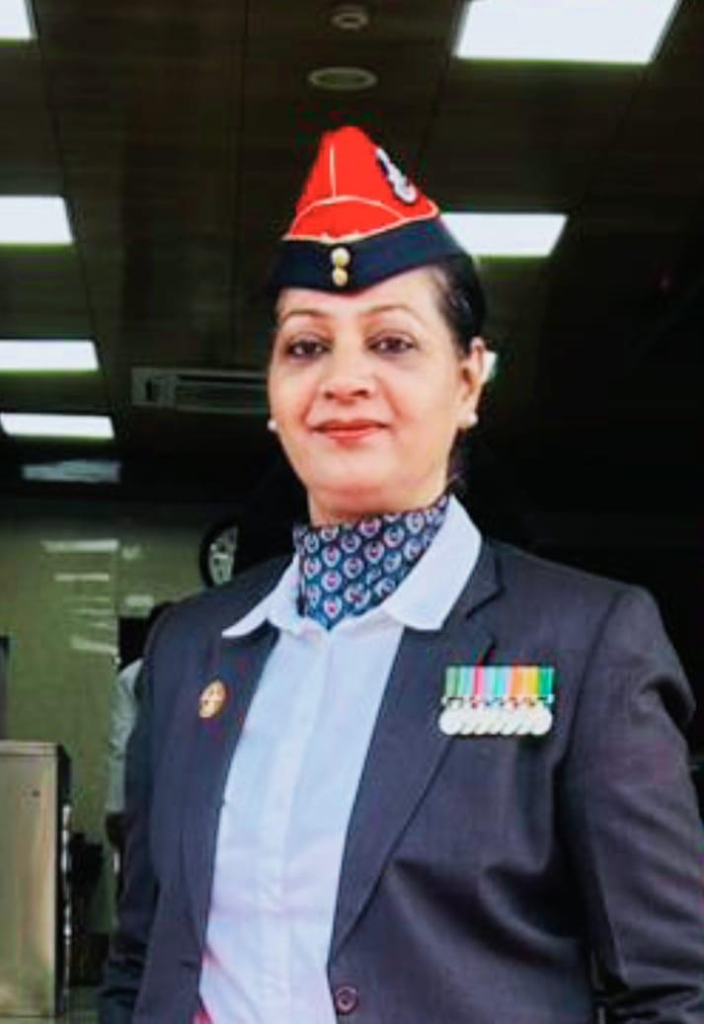
Ankita Srivastava (veteran army officer )
Having joined Indian Army as a first girl from Allahabad in 1993, she occasionally switched between guns and pens. Editor of the army journal at the Academy and she continued to write military articles in various army jourals.
She is one of the pioneers in the Indian army having served for 14 years and being a part of Operation Kargil and Operation Parakram. She has been the first woman officer to be posted in counterinsurgency area in the far east facing huge challenges.
A Motivational speaker and a trainer by passion for grooming men and women to be better at their profession, she conducts lectures across the country. She is also an acclaimed author having contributed to 20 national and international anthologies. Her novels are:
Besides leaving her footprints in the male dominated profession i.e. The Indian Army; she later walked beauty pageants and won awards.
Ankita says: “Doordarshan serial Udayan had impacted me as a college girl so much that I decided to don the Uniform. Apart from this ,I having been brought up in a very strict family and which was not very comfortable for girls; also let me decide that I need to join Army to make my parents believe that girls are no less powerful.”
“But after I hung up my boots I decided to participate in the city level pageant by Tanishq and then by Gladrags Mrs. India. In 2009 and I was awarded ‘Most Vivacious Woman’ by them. I had switched to stilettos!”
Now Ankita Srivastava is General Manager for security at State Bank of India. She says that wishes to motivate younger people to be motivated, disciplined and focused. We wish her every success.

